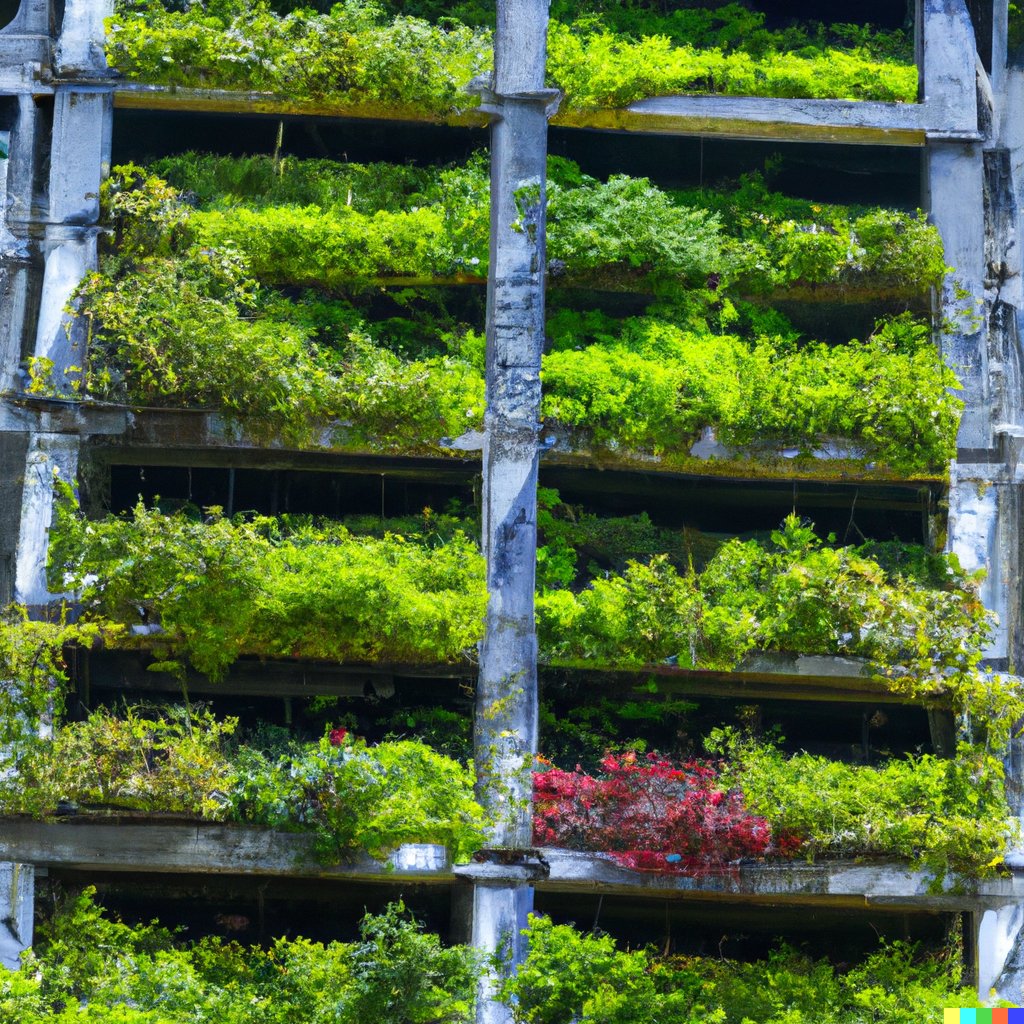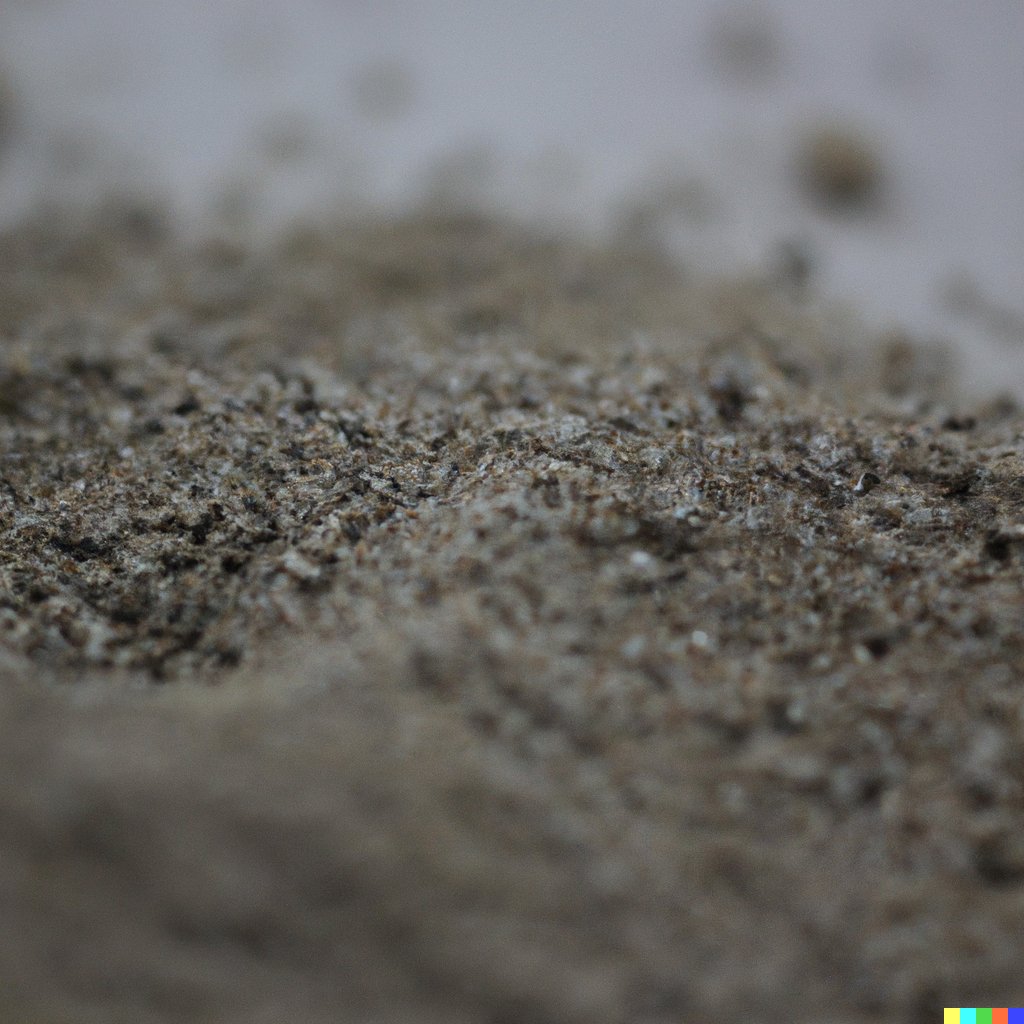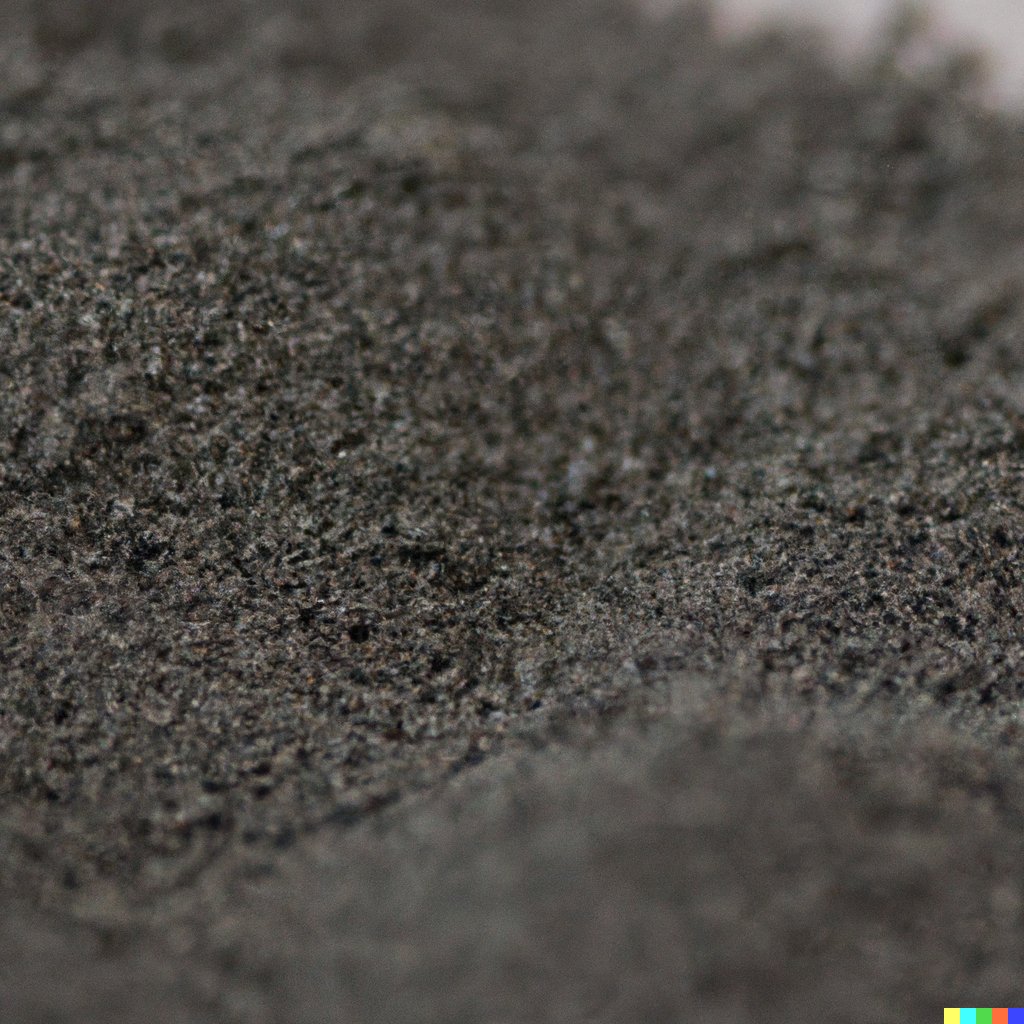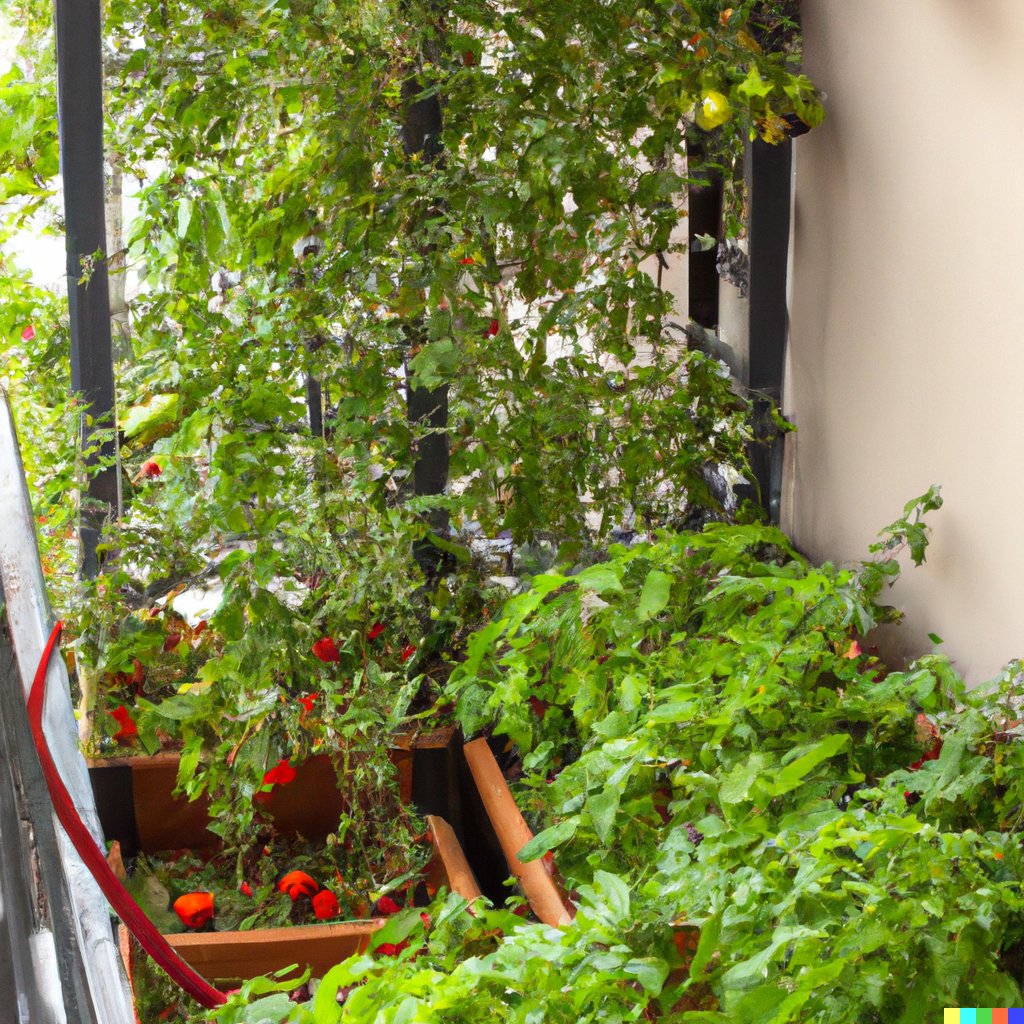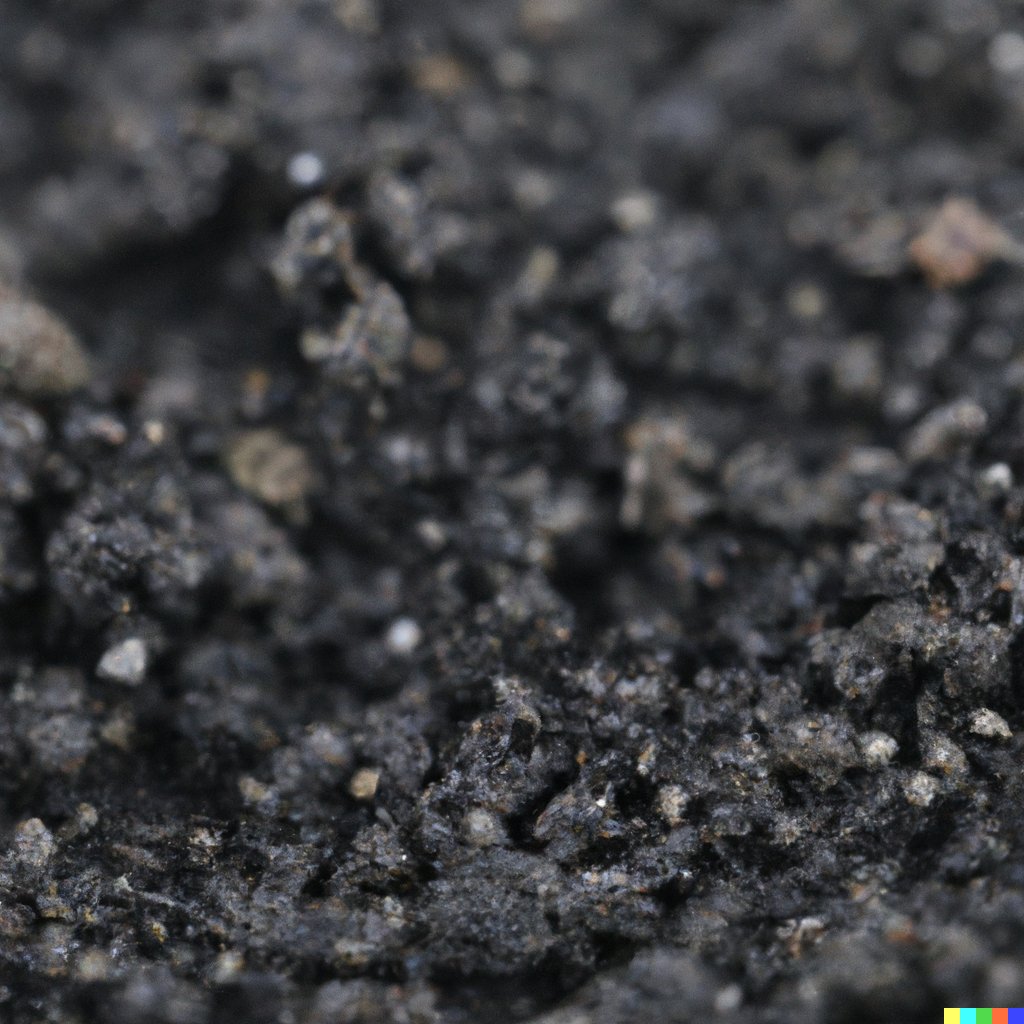
Taking care of a plant, in reality, means taking care of the soil. Dive deep into the world of garden soil and discover how nurturing the earth beneath our feet can lead to a sustainable, healthy, and thriving garden ecosystem, especially for our children.
1. The Essence of Garden Soil: It's All About the Microbes
At the heart of every thriving garden lies a bustling community of microorganisms. These tiny creatures, including fungi, bacteria, and insects, play a pivotal role in determining the health and vitality of plants. More than 100 billion individual organism can be found in a hand full of soil. By feeding and nurturing these microorganisms with organic material and minerals, we ensure that our plants receive all the essential nutrients they need to flourish.
1.1. The Science of Soil: More Than Just Dirt
Soil Remineralization
Rock dust, a lesser-known garden hero, replenishes depleted soils. By restoring essential minerals, plants get the nourishment they need to thrive. Different types of rock dust, such as basalt and volcanic ash, offer a unique blend of minerals beneficial to the soil.
Boosting Soil Microbiology
Rock dust doesn't just add minerals; it enhances soil microbial activity. This improvement leads to better soil structure and fertility, creating an environment where plants can truly thrive.
The Tangible Benefits: From Plant Growth to Water Retention
- Enhanced Plant Growth: Mineral-rich soil directly correlates with robust plant growth.
- Improved Crop Yield and Quality: Experience more abundant harvests and better-tasting produce.
- Disease and Pest Resistance: Strengthen plants from the roots up, making them less susceptible to common garden ailments.
- Soil Water Retention: Rock dust improves the soil's ability to retain moisture, reducing the need for frequent watering.
1.2. How Soil Quality Affects Plant Health and Yield
A plant's health is deeply rooted in the quality of the soil. Nutrient-rich soil fosters robust and healthy plants, leading to bountiful yields. Conversely, poor soil can stunt growth and reduce yields. For those seeking a flourishing garden, understanding and nurturing your soil is paramount.
1.3. The Connection Between Soil Health and Human Health
Our well-being is intrinsically linked to the health of our soil. Nutrient-dense soil produces nutrient-rich foods, which in turn nourish our bodies. Moreover, healthy soil acts as a natural filter, purifying our water sources and playing a crucial role in our overall health, especially for our children.
2. The Micro-Ecosystems Beneath Our Feet
Dive beneath the surface, and you'll discover a world teeming with life. This micro-ecosystem plays a crucial role in the health of our gardens and, by extension, our planet.
2.1. The Intricate Web of Microbes, Fungi, Bacteria, and Insects
The soil is alive! A single teaspoon can contain billions of microorganisms, each playing a unique role. From bacteria breaking down organic matter to fungi forming symbiotic relationships with plants, this microscopic world is the engine driving our soil's health.
2.2. The Difficulty of Breaking Down Nutrients and the Role of Millions of Species
Breaking down nutrients is no small feat. It requires the collective effort of millions of species, each contributing to the process. These microorganisms transform organic matter into essential nutrients, making them available for plants. It's a delicate balance, and any disruption can have cascading effects on the ecosystem.
2.3. The Symbiotic Relationship Between Plants and Soil
Plants and soil share a beautiful, symbiotic relationship. While plants draw nutrients from the soil, they also give back, shedding leaves and organic matter that nourish the soil in return. This cycle of give-and-take ensures the continued health and vitality of both.
Lazy Sustainability Tip: Want to boost your garden's health without the hard work? Consider adding a layer of compost or mulch. Not only does this enrich the soil, but it also reduces the need for watering and deters weeds. It's a simple step with profound benefits.
3. The Magic of Worm Composting and adding Organic Material into Garden Soil
The health of our garden soil is intricately linked to the processes of worm composting and adding organic material into the soil. These natural phenomena play a pivotal role in enhancing soil fertility, promoting plant growth, and ensuring a sustainable gardening practice that benefits both the environment and our health.
3.1. Understanding Worm Composting and Its Benefits
Worm composting, or vermicomposting, is nature's way of recycling organic waste. By introducing worms, particularly red wigglers, into a compost bin, but also plant pots, they break down organic matter into nutrient-rich castings. These castings are a goldmine for garden soil, enriching it with essential nutrients and improving its texture. Moreover, worm composting is a sustainable practice that reduces landfill waste and promotes a circular economy.
3.2. The Nitrogen Cycle: Nature's Way of Feeding Plants
The nitrogen cycle is a natural process where nitrogen from the atmosphere is converted into various forms that plants can absorb and use for growth. Nitrogen-fixing bacteria in the soil play a crucial role in this cycle, converting atmospheric nitrogen into ammonia, which plants can then take up. This cycle ensures that plants have a steady supply of nitrogen, a vital nutrient for their growth and health.
3.3. How Synthetic Fertilizers Disrupt the Natural Balance
While synthetic fertilizers might provide a quick boost of nutrients to plants, they disrupt the natural nitrogen cycle. Over-reliance on these fertilizers can lead to soil degradation, nutrient imbalances, and even groundwater contamination. Moreover, they can harm the beneficial microorganisms in the soil, disrupting the natural processes that keep the soil healthy. The same microbes that are responsible for breaking down micronutrients for our plants.
4. The Dark Side: Effects of Synthetic Fertilizers and Pesticides
Our quest for bountiful yields has led to the widespread use of synthetic fertilizers and pesticides. However, these chemicals come with a hefty environmental and health price tag. Understanding their impact can guide us towards more sustainable and health-conscious gardening practices.
4.1. The Impact of Synthetic Fertilizers on Soil Health and Micro-Ecosystems
Synthetic fertilizers might seem like a boon for plants, but they have long-term detrimental effects on soil health. They can lead to soil acidification, reduce the number of beneficial microbes, and even cause nutrient leaching. Over time, this results in a decline in soil fertility and disrupts the vibrant micro-ecosystems beneath our feet.
4.2. How Pesticides Harm Beneficial Insects, Fungi, and Bacteria in Garden Soil
Pesticides, while effective against pests, don't discriminate. They harm beneficial insects like bees and ladybugs, fungi that form symbiotic relationships with plants, and bacteria that aid in nutrient cycling. This indiscriminate killing can lead to reduced pollination, disrupted soil health, and even pave the way for more resilient pests.
4.3. Alternatives to Synthetic Inputs for a Balanced Garden Soil
Embracing organic and natural alternatives can help restore the balance in our gardens. From using compost tea and neem oil to introducing beneficial insects, there are myriad ways to nurture our gardens without resorting to harmful chemicals. By making informed choices, we can ensure a vibrant, healthy, and sustainable garden that benefits both the environment and our well-being.
Lazy Sustainability Tip: Embrace companion planting in your garden. Certain plants, when grown together, can deter pests, improve soil health, and even enhance the flavor of vegetables. It's a simple yet effective way to reduce the need for synthetic inputs and promote a balanced garden ecosystem.
5. Sustainable Gardening: A Step Towards a Greener Future
Sustainable gardening is not just a trend; it's a commitment to creating a healthier environment for future generations. By adopting eco-friendly practices, we not only nurture our gardens but also contribute to a more sustainable and healthier planet, especially for our children.
5.1. The Environmental Benefits of Sustainable Gardening
At the heart of sustainable gardening lies the promise of a healthier environment. Organic gardening practices enrich the soil, promote biodiversity, and reduce the harmful effects of chemicals on our ecosystem. Moreover, gardens that follow sustainable methods act as carbon sinks, absorbing more carbon dioxide and releasing oxygen, making our air cleaner and fresher.
5.2. Reducing Carbon Footprint with Organic Gardening Practices
Every choice we make in our gardens has an environmental impact. By opting for organic fertilizers over synthetic ones, planting native species, and reducing the use of power tools, we can significantly reduce our carbon footprint. These practices not only benefit the immediate environment of the garden but also contribute to global efforts to combat climate change.
5.3. The Ripple Effect: How One Garden Can Make a Difference
One might wonder how a single garden can make a difference in the grand scheme of things. However, every sustainable garden serves as a model for the community, inspiring others to adopt similar practices. This ripple effect, where one garden influences many others, can lead to a collective shift towards more eco-friendly gardening practices, amplifying the positive impact on the environment.
6. Lazy Sustainability: Easy Ways to Make a Difference
In today's fast-paced world, not everyone has the time or resources to adopt extensive sustainable practices. Enter Lazy sustainability, a concept that focuses on making small, manageable changes that collectively make a significant difference.
6.1. What is Lazy Sustainability and Why It's Effective on Garden Soil
Lazy sustainability is all about making eco-friendly choices that are easy to implement and maintain. It's the idea that small steps, when taken consistently, can lead to significant positive changes. Whether it's choosing to compost kitchen waste, using a rain barrel, or simply reducing water usage, these effortless practices can have a profound impact on the environment.
6.2. Simple Steps to Implement in Your Garden
There are countless ways to practice lazy sustainability in your garden:
- Start composting: Turn kitchen scraps into nutrient-rich compost.
- Use mulch: Reduce water evaporation and suppress weeds.
- Plant drought-resistant plants: Save water and reduce maintenance. By adopting these simple practices, you can make your garden more sustainable without investing a lot of time or effort.
6.3. The Power of Small Changes: From Composting to Water Conservation
Every small change matters. Composting reduces landfill waste, mulching conserves water, and planting native species supports local biodiversity. These might seem like minor steps, but collectively, they contribute to a healthier planet. Remember, sustainability doesn't always require grand gestures; sometimes, it's the small, consistent efforts that make the most significant difference.
7. Protecting Your Children: A Garden Soil Free from Harmful Chemicals
Every parent's dream is to provide a safe and healthy environment for their children. One of the most overlooked areas is the garden, where harmful chemicals often lurk. By understanding the dangers of chemical fertilizers and pesticides and embracing organic alternatives, we can create a garden that's not only beautiful but also safe for our children. Moreover, teaching them the importance of sustainable gardening can instill values of environmental responsibility from a young age.
7.1. The Dangers of Chemical Fertilizers and Pesticides on Garden Soil
Chemical fertilizers and pesticides, while effective in promoting plant growth and keeping pests at bay, come with a host of environmental and health concerns. These chemicals can leach into the soil, contaminating groundwater and harming beneficial microorganisms. For children, who often play in the garden and are more susceptible to toxins, exposure to these chemicals can lead to various health issues, including allergies, respiratory problems, and even long-term diseases.
7.2. Organic Alternatives for a Safer Garden
Transitioning to organic gardening practices is the key to a safer garden. Organic fertilizers, derived from natural sources like compost, manure, and bone meal, nourish the soil without the harmful side effects of chemicals. Similarly, natural pest control methods, such as introducing beneficial insects, companion planting, and using neem oil, can effectively keep pests at bay without endangering our health or the environment.
7.3. Teaching Children the Importance of Sustainable Gardening
Children are the future custodians of our planet. By teaching them the importance of sustainable gardening, we're not just imparting knowledge but also instilling values. Let them participate in gardening activities, from planting seeds to harvesting. Explain the benefits of organic practices and the dangers of chemicals. Encourage them to observe the wonders of nature, from the tiny microbes in the soil to the birds and butterflies that visit the garden. Through these hands-on experiences, they'll develop a deep appreciation for nature and understand the importance of protecting it.
8. What to Avoid for Healthy and Sustainable Garden Soil:
-
Chemical Fertilizers and Pesticides: These can harm the natural microorganisms in the soil, disrupt the soil's pH balance, and lead to long-term soil degradation. They can also contaminate groundwater and harm beneficial insects.
-
Overwatering: Excessive water can compact the soil, reduce aeration, and drown beneficial microorganisms. It's essential to maintain a balance to ensure soil health.
-
Monocropping: Planting the same crop in the same place repeatedly can deplete the soil of specific nutrients and make it more susceptible to pests and diseases.
-
Tilling Too Often: While tilling can aerate the soil, doing it too frequently can disrupt the natural structure of the soil and harm beneficial insects and microorganisms.
-
Using Contaminated Compost: Ensure that the compost you use is free from harmful chemicals, weed seeds, and diseases.
-
Ignoring Soil pH: Different plants require different pH levels. Regularly test your soil's pH and amend it accordingly to ensure it's suitable for the plants you're growing.
-
Compaction: Walking or driving frequently over garden beds can compact the soil, making it hard for roots to grow and reducing aeration.
-
Neglecting Cover Crops: Not using cover crops can leave soil exposed to erosion and nutrient loss. Cover crops like clover or rye can improve soil health by fixing nitrogen and adding organic matter.
-
Avoiding Regular Soil Testing: Without regular testing, you won't know the nutrient and pH levels of your soil, which are crucial for plant health.
-
Using Non-Organic Mulch: Some mulches can leach chemicals into the soil. It's better to use organic mulch like straw, leaves, or wood chips.
9. Rock Dust: The Unsung Hero of Garden Soil
Rock dust, often overlooked, plays a pivotal role in rejuvenating garden soil, ensuring plants get the essential minerals they need. Its impact on soil health, plant growth, and overall garden sustainability is profound.
9.1: What is Rock Dust?
-
Definition and Composition: Rock dust is a natural byproduct, often sourced from quarries. It's rich in different minerals and provides a slow-release form of natural fertilizer for gardens. Almost all micro nutrients are available in rock dust.
-
Types of Rock Dust: From basalt to volcanic ash, each type of rock dust offers a unique mineral profile, beneficial for different soil types and plant needs.
9.2: The Science Behind Rock Dust
-
Soil Remineralization of Garden Soil: Over time, soils can become depleted. Rock dust acts as a multi-vitamin, replenishing essential minerals and revitalizing the soil.
-
Garden Soil Microbiology Boost: Healthy soil teems with microbial life. Rock dust enhances this microbial activity, leading to improved soil structure and increased fertility.
9.3: Benefits of Using Rock Dust in Your Garden
-
Enhanced Plant Growth: Plants thrive in mineral-rich soil. Rock dust ensures they get the nutrients they need for robust growth.
-
Improved Crop Yield and Quality: A garden treated with rock dust can produce more abundant, tastier harvests.
-
Disease and Pest Resistance: Healthier plants are more resilient. Rock dust strengthens plants, making them less prone to diseases and pests.
-
Soil Water Retention: Moisture is vital. Rock dust improves the soil's water retention capacity, ensuring plants stay hydrated.
9.4: Application and Usage
-
How to Apply Rock Dust: Sprinkle it on the soil's surface or mix it into the top layer. Depending on your garden's needs, you might apply rock dust once a year or once every few years.
-
Frequency of Application: While there's no one-size-fits-all answer, most gardens benefit from an annual application.
-
Combining with Other Soil Amendments: Rock dust works synergistically with compost and organic fertilizers, amplifying their benefits.
10. Challenges of Unlocking the Secrets of Garden Soil:
-
Initial Learning Curve: Understanding the intricacies of soil composition, pH levels, and microbial life can be overwhelming for beginners.
-
Time and Effort: Achieving a sustainable and healthy garden soil doesn't happen overnight. It requires consistent effort, patience, and time.
-
Cost of Garden Soil: Organic and sustainable gardening methods might require an initial investment in quality compost, organic fertilizers, and other tools.
-
Mistakes and Setbacks: Even with the best intentions, gardeners can face issues like pest infestations, soil diseases, or unfavorable weather conditions.
-
Maintenance: Keeping the soil vibrant and healthy is an ongoing task. Regular testing and adjustments might be needed.
11. Benefits of Unlocking the Secrets of Garden Soil:
-
Healthier Plants: A well-balanced and nutrient-rich soil leads to stronger plants that are more resistant to diseases and pests.
-
Environmental Impact: Sustainable gardening practices contribute to a healthier environment by reducing the use of chemicals and promoting biodiversity.
-
Personal Health: Growing your own food in rich soil can lead to more nutritious produce. Plus, the act of gardening itself has therapeutic benefits.
-
Economic Savings of Garden Soil: In the long run, sustainable gardening can be cost-effective. Healthy soils require fewer inputs, and there's the potential benefit of growing your own food.
-
Connection with Nature: Delving deep into the world of soil allows gardeners to forge a closer connection with the earth and the cycles of nature.
-
Contribution to Future Generations: By adopting sustainable practices, gardeners ensure that the soil remains fertile and productive for future generations.
-
Sense of Achievement: There's immense satisfaction in knowing that you've nurtured a piece of land to its full potential, benefiting both the environment and yourself.
Conclusion: The Wonders Beneath Our Feet and the Path to a Sustainable Future
Understanding the intricacies of garden soil is not just about cultivating a thriving garden; it's a commitment to environmental sustainability and the health of our loved ones. Beneath the surface of our gardens lie intricate micro-ecosystems, teeming with life and processes that play a pivotal role in the health of our plants and, by extension, our planet.
These micro-ecosystems, often overlooked, are the unsung heroes of a flourishing garden. They break down organic matter, aerate the soil, and facilitate nutrient absorption, creating a symbiotic relationship with the plants above. By nurturing and understanding these micro-ecosystems, we not only enhance our gardening experience but also contribute to a larger global effort of environmental preservation.
As we move forward, let's remember that every small step we take towards a greener and healthier garden has profound implications. Whether it's opting for organic fertilizers, practicing water conservation, or simply educating ourselves about the soil's wonders, each action contributes to a sustainable future. It's not just about the present but ensuring that the beauty and vitality of our gardens are passed down to future generations. Let's cherish the wonders beneath our feet and recognize their invaluable role in our journey towards a healthier planet and a brighter tomorrow.
FAQ on Garden Soil and Sustainability
Q1: Why is garden soil health important?
A1: Healthy garden soil is teeming with life and provides plants with essential nutrients. It promotes plant growth, reduces the need for chemical fertilizers, and supports vibrant micro-ecosystems, leading to a more sustainable and productive garden.
Q2: How can I improve my garden soil's health?
A2: You can improve soil health by adding organic compost, practicing crop rotation, using cover crops, avoiding chemical fertilizers, and ensuring proper water management.
Q3: What are the dangers of chemical fertilizers?
A3: Chemical fertilizers can harm beneficial microorganisms, disrupt the soil's natural balance, contaminate groundwater, and harm beneficial insects and the environment.
Q4: How often should I test my soil?
A4: It's recommended to test your soil every 2-3 years. However, if you notice plant growth issues or are starting a new garden, it's a good idea to test it before planting.
Q5: What is soil pH, and why is it important?
A5: Soil pH measures the acidity or alkalinity of the soil. Different plants have specific pH requirements. Ensuring the correct pH level helps plants absorb nutrients effectively.
Q6: What is monocropping, and why should I avoid it?
A6: Monocropping is the practice of growing the same crop in the same place year after year. It can deplete the soil of specific nutrients and increase susceptibility to pests and diseases.
Q7: How does overwatering affect soil health?
A7: Overwatering can compact the soil, reduce its aeration, and drown beneficial microorganisms, leading to reduced soil health and plant growth.
Q8: What is lazy sustainability?
A8: Lazy sustainability refers to simple, easy-to-implement practices that have a positive impact on the environment without requiring significant effort or change in lifestyle.
Q9: How can I practice lazy sustainability in my garden?
A9: Implementing practices like composting kitchen waste, using rainwater for irrigation, planting native species, and mulching are examples of lazy sustainability for gardens.
Q10: Why is it essential to avoid soil compaction?
A10: Soil compaction reduces the space between soil particles, limiting root growth, reducing aeration, and making it difficult for water to penetrate. It can lead to reduced plant growth and health.









